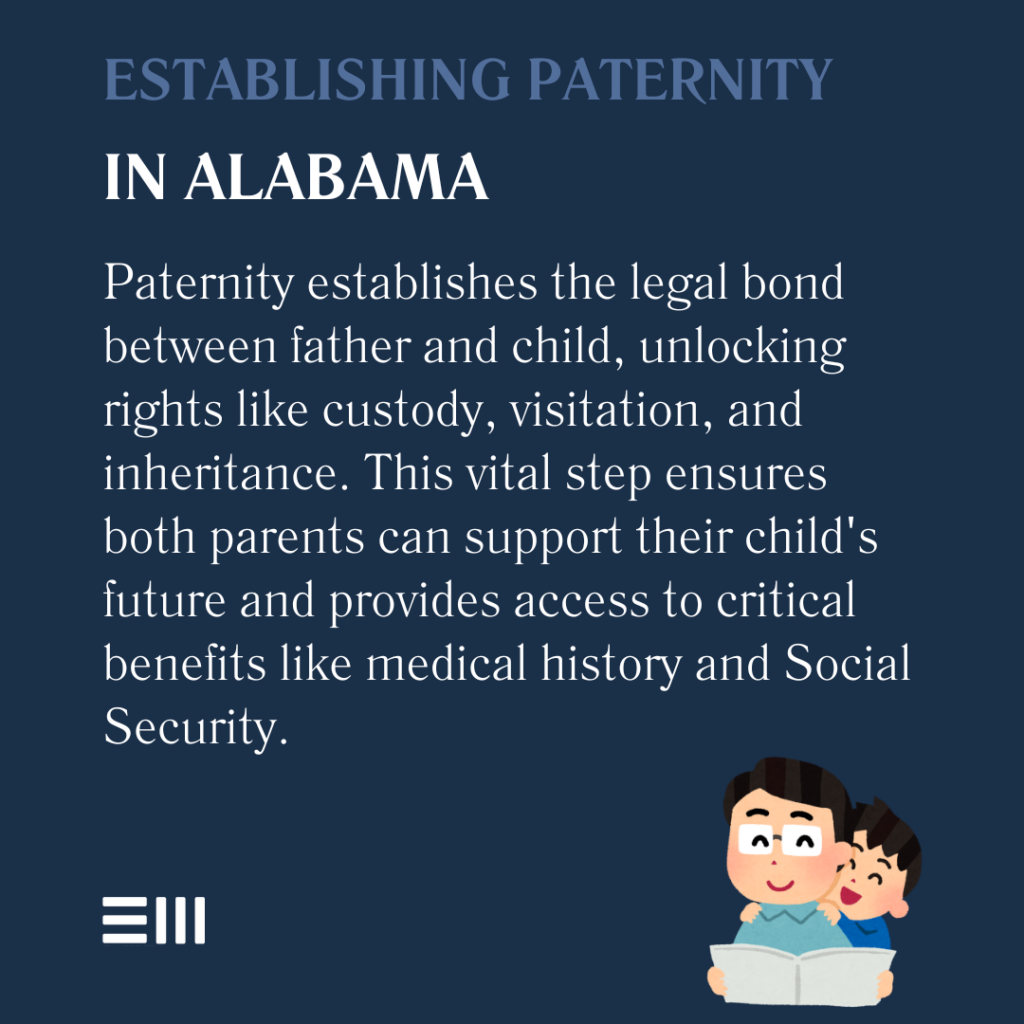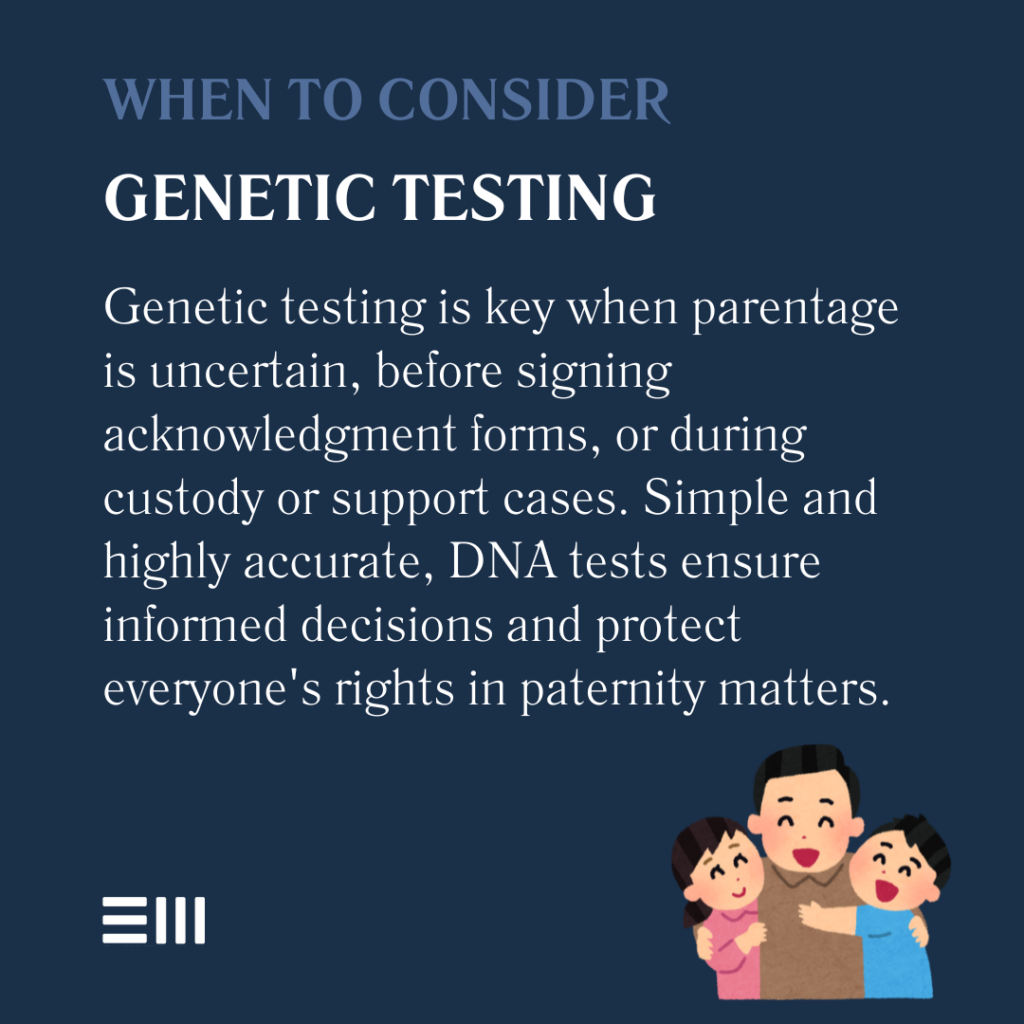
Behind every paternity case lies a story of family bonds, legal rights, and a child’s future. From Birmingham to Mobile, parents across Alabama navigate these waters daily, seeking answers that will shape their families for generations to come.
The decision to establish, challenge, or understand paternity rights carries profound implications that extend far beyond courthouse walls, touching everything from a child’s sense of identity to financial security.
Understanding Paternity in Alabama
Establishing paternity creates a legal bridge between father and child, opening doors to essential rights and responsibilities that shape both lives.
Beyond the immediate emotional connections, paternity determination affects everything from medical decisions to inheritance rights, making it a foundational element of family law in Alabama.
The process, while sometimes complex, provides crucial protections for both parents and children under Alabama law.
Interstate Paternity Issues
When parents live in different states, paternity cases can become more complex.
Alabama follows the Uniform Interstate Family Support Act (UIFSA), which helps coordinate paternity and support matters across state lines. This framework ensures that:
- Paternity can be established even when parents live in different states;
- Multiple states can cooperate in genetic testing procedures;
- Court orders from one state are enforceable in another;
- Parents can participate in hearings from their home state; and
- Support orders remain consistent across state boundaries.
These interstate provisions help maintain continuity and fairness in paternity cases, regardless of where parents reside.
Birth Certificate Modifications
Once paternity is established, parents often need to modify the child’s birth certificate. This process involves:
- Filing a petition with vital records;
- Submitting proof of paternity establishment;
- Paying required modification fees;
- Obtaining certified copies of the new certificate; and
- Updating other important documents.
These modifications ensure accurate legal records and simplified access to benefits and services for the child.
Common Questions About Paternity Laws in Alabama
The path to establishing, challenging, or understanding paternity often raises numerous questions.
Here are comprehensive answers to the most common inquiries about paternity in Alabama.
How is Paternity Established in Alabama?
Paternity can be established in several ways:
- Voluntary acknowledgment by both parents signing a Declaration of Paternity form;
- Marriage between the mother and father before the child’s birth;
- Court order following genetic testing; and
- Administrative order through the Department of Human Resources.
After signing, parents have 60 days to rescind a voluntary acknowledgment. Beyond this window, challenging paternity requires proving fraud, duress, or material mistake of fact.
Understanding these establishment methods helps families choose the most appropriate path for their situation, ensuring a solid legal foundation for the parent-child relationship.

What Rights Does Establishing Paternity Create?
Once paternity is established, it creates:
- The father’s right to seek custody or visitation;
- The child’s right to inherit from the father;
- Access to the father’s medical history and genetic information;
- The right to receive Social Security benefits if the father becomes disabled or dies;
- Health insurance coverage through the father’s employment; and
- Child support obligations.
These rights and responsibilities form the fundamental framework that supports a child’s development and ensures both parents can actively participate in their child’s life journey.
Establishing these legal connections early helps prevent future complications and provides stability for all parties involved.
When Should I Consider Genetic Testing?
Genetic testing becomes relevant in several situations:
- When either party questions biological parentage;
- Before signing voluntary acknowledgment forms;
- During child support proceedings;
- As part of a custody dispute; and
- When seeking to disestablish paternity.
Modern DNA testing provides 99.9% accuracy and requires only a simple cheek swab from the father, child, and sometimes the mother.
Understanding when to pursue genetic testing helps avoid future legal complications and ensures all parties can make informed decisions about their rights and responsibilities.

How Much Does Paternity Testing Cost in Alabama?
Testing costs vary based on circumstances:
- Court-admissible tests: $300-500;
- Private testing: $100-200;
- DHR-ordered tests: Often provided at reduced cost; and
- Legal aid programs: May offer assistance with testing costs.
Some labs offer payment plans or sliding scale fees based on income. While cost considerations are important, investing in accurate, court-admissible testing can prevent costly legal disputes and provide peace of mind for all parties involved.
Can I Contest Paternity in Alabama?
Contesting paternity involves specific procedures:
- File a petition within time limits specified by law;
- Present evidence supporting the challenge;
- Potentially undergo court-ordered genetic testing;
- Attend hearings to present your case; and
- Work with legal counsel to navigate the process.
Success in contesting paternity often depends on the timing and circumstances of the original establishment. Each case presents unique challenges, making it essential to understand your rights and obligations before initiating a contest.
What Happens if the Father Refuses Paternity Testing?
When a father refuses testing:
- Courts may issue an order compelling testing;
- Failure to comply can result in contempt charges;
- The court might make adverse findings about paternity;
- Default judgments could establish paternity without testing; and
- Child support obligations may be imposed regardless.
These legal mechanisms ensure that a father’s refusal to participate doesn’t impede the establishment of paternity or the child’s right to support. Courts prioritize the child’s best interests throughout this process.
How Does Paternity Affect Child Support?
Establishing paternity leads to support obligations:
- Monthly financial support payments;
- Medical insurance coverage;
- Contribution to childcare costs;
- Share of educational expenses; and
- Responsibility for extraordinary expenses.
Support amounts follow Alabama’s guidelines based on both parents’ incomes. These financial obligations ensure that both parents contribute to their child’s upbringing, providing a stable foundation for the child’s future development and success.
Rights of Unmarried Fathers Before Paternity Establishment
Before legal paternity is established, unmarried fathers face unique challenges in asserting their parental rights.
Key considerations include:
- Registration with Alabama’s Putative Father Registry;
- Time limits for asserting parental rights;
- Temporary visitation arrangements;
- Protection of future custody rights; and
- Financial support considerations.
Early action and proper documentation can help protect an unmarried father’s rights while the paternity establishment process moves forward.
The Role of DHR in Paternity Cases
The Alabama Department of Human Resources (DHR) plays a vital role in paternity establishments:
- Facilitating voluntary acknowledgment processes;
- Coordinating genetic testing services;
- Assisting with child support establishment;
- Providing resources for both parents; and
- Maintaining important records and documentation.
DHR’s involvement helps streamline the process and ensures all legal requirements are met properly.
Taking the Next Step: Your Paternity Rights Matter
Every child deserves to know their heritage, and every parent deserves clear legal standing in their child’s life.
Whether you’re seeking to establish, challenge, or understand paternity rights in Alabama, having experienced legal guidance can make all the difference.
Connect With Our Family Law Experts
The complexities of paternity law don’t have to overwhelm you.
Our experienced family law attorneys understand the nuances of Alabama paternity cases and can help you:
- Navigate the legal process confidently;
- Protect your rights and interests;
- Handle documentation properly;
- Meet all legal deadlines; and
- Achieve the best possible outcome for your family.
Contact our office today for a confidential consultation about your paternity case.
Let us help you secure your family’s future with clear, experienced legal guidance tailored to your unique situation.
Can't find what you're looking for? Search our site below.










